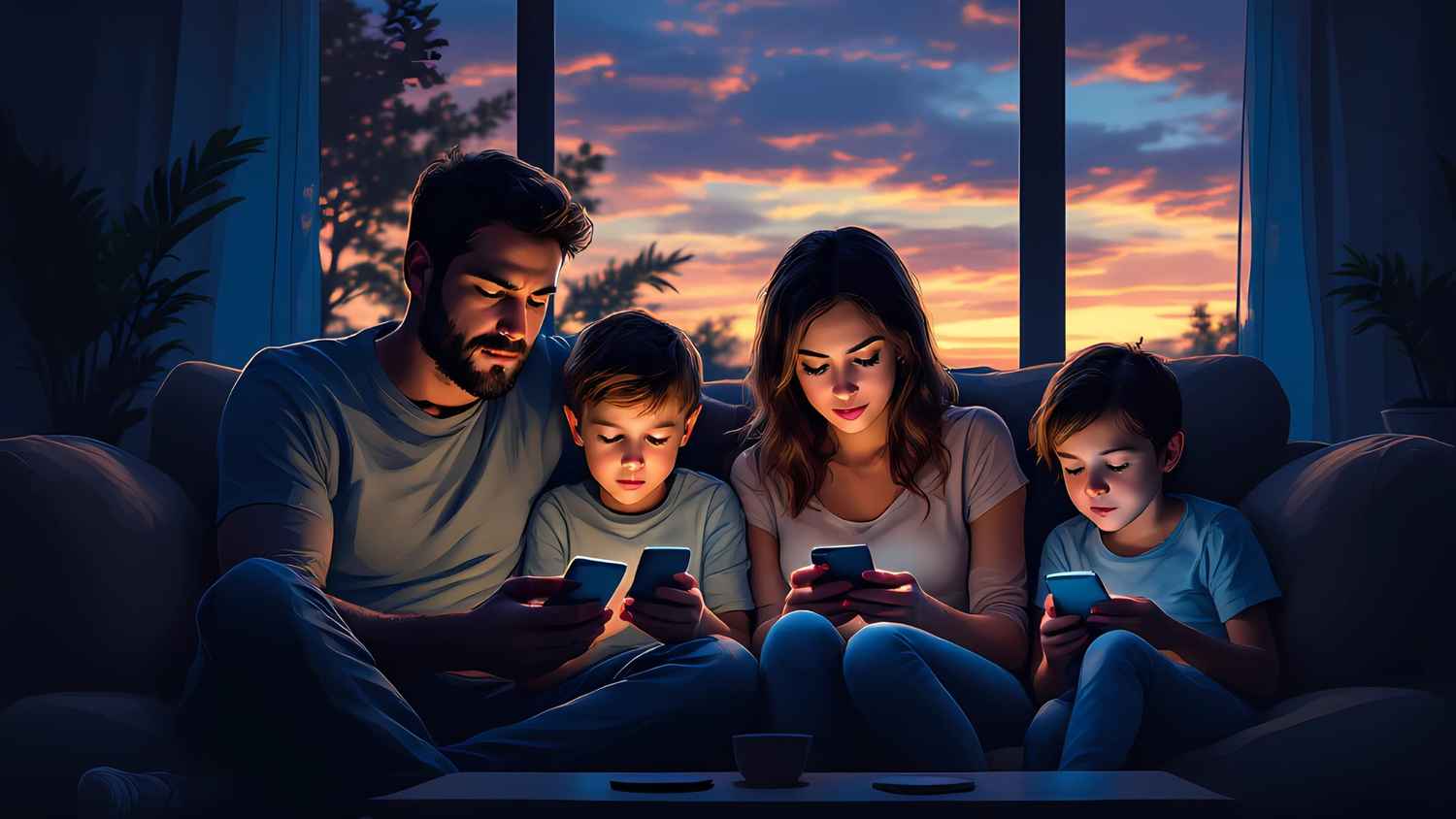Parents’ smartphone addiction is destroying families, Vivo CMR study reveals

In an age where smartphones have become our constant companions, Vivo’s sixth edition of the “Switch Off” study in partnership with CMR India, explores the impact of excessive smartphone use on familial bonds revealing a stark analysis. What if the problem is not the children’s screen time, but parents’ smartphone usage?
 Survey
SurveyThe Digital Paradox
Imagine a scene that now seems too familiar in homes across India: A family sitting physically together in a living room, yet emotionally light-years apart. The parents scrolling mindlessly, checking emails and social media feeds, children yearning for connection, and smartphones silently driving a wedge between the familial bond. This isn’t a dystopian narrative—it’s the raw reality uncovered by Vivo-CMR study.
This year’s study, “Impact of Smartphones of Parent-Child relationships,” builds upon the concerns hinted in last year’s report, where children showed alarming signs of smartphone addiction. But this year’s report tries to highlight the quality of interactions revealing a disconnect in the parent-child relationship, as the former grapple with their own digital dependence.
The numbers are nothing short of ironic. As per the study, parents are averaging over five hours of daily smartphone use, with a staggering 90% admitting they spend less quality time with their children due to their digital habits. Even more revealing, over 75% confess to being on their phones during the limited time they do spend together.
A 2022 research by communication scholars Robin L. Nabi and Lara N. Wolfers revealed that parental smartphone usage isn’t just a minor distraction and is actually responsible for eroding children’s emotional intelligence. When parents are absorbed in their smartphones, it creates what the researchers call a “still-face effect”. It is described as moments of emotional disengagement where parents, though physically present, are mentally absent.
The researchers emphasize that this isn’t just about missed moments; it’s about fundamental developmental consequences. The mere presence of a parent is insufficient for emotional bonding. As children learn emotional intelligence through rich social interactions, active participation, eye contact, and verbal communication are very essential.
Another study close home by the National Commission for Protection of Child Rights (NCPCR) 2021, reveals that 62.6% of children access smartphones through their parents, and while 76.2% of parents implement time limits for children’s device use, only a small fraction actively use digital monitoring tools.
Child Psychologist and Parenting Counsellor Riddhi Doshi Patel cuts to the heart of the matter: “As a child psychologist, I witness the silent drift that excessive smartphone use creates between parents and children. The data underscores a reality many families already sense—phones have become indispensable yet isolating.”
But here’s the twist, the children, despite their own screen time of over four hours daily, are acutely aware of their parents’ digital distraction. Over 91% report feeling lonelier than ever and directly attribute this isolation to their parents’ smartphone addiction.
When asked to design a phone for their parents, nearly 94% of children prioritized basic calling and messaging features, but deliberately omitted entertainment apps that consume parental attention. The message is clear: children crave genuine connection which, in itself is quite profound in this digital-native generation.
Vivo-CMR’s study also reveals the children’s acute relationship with social media and its ties with peer pressure. Over 1 in 3 children wish that some of the most popular platforms had never been invented, and over 66% admit they would quit social media if their friends did the same.
How to achieve mindful engagement?
Now, this isn’t about demonizing technology. None of the studies suggest eliminating smartphone use, but advocate reimagining our relationship with it. The most powerful “parental control” isn’t an app or a setting—it’s presence, attention, and genuine connection.
When parents are constantly distracted, children may develop attention-seeking behaviours, struggle with emotional regulation, and experience reduced opportunities for developing empathy.
NCPCR’s research suggests that mindful media use is crucial as the parents serve as primary role models for their children’s digital habits, and their consistent behaviour speaks volumes.
For instance, creating device-free zones during family time, prioritizing face-to-face conversations, and using digital moments as opportunities for emotional learning, will go a long way in building healthier tech habits for both parents and their children.
In an era where pixels threaten to replace presence, the most revolutionary act might just be putting down our phones and picking up a conversation.
Siddharth Chauhan
Siddharth reports on gadgets, technology and you will occasionally find him testing the latest smartphones at Digit. However, his love affair with tech and futurism extends way beyond, at the intersection of technology and culture. View Full Profile